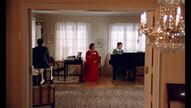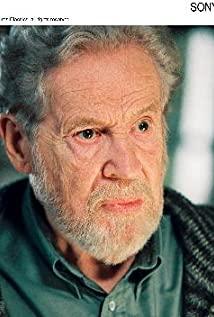Problematic children arise from problematic parents and problematic relationship patterns.
In a "mutually hurting" parent-child relationship, both mother and daughter are victims. The mother strongly projects her own emotions to her daughter, ignores her daughter's feelings, and regards her daughter as her own "community" rather than an independent person. In this case, the mother equates her own feelings with her daughter's. The mother does not see the real daughter, but only sees her projected shadow on the daughter. She imposed her likes and dislikes on her daughter, and let her act and dress according to her intentions.
The line between the mother's feelings and the daughter's is not clear, and because the daughter is in a weak position, she forces her daughter to always be aware of the strong mother's emotions, adjust her behavior, suppress her inner feelings, and form a person who pleases her mother." false self". In the eyes of daughters, mothers are indifferent and unable to communicate - this sets the tone for daughters to the world and others throughout her life - whoever is the parent is the fate of the child. Hate comes from this.
When the emotions of the two are mixed, and the mother is in a dominant position, the daughter is obliterated as an independent "object", resulting in a low degree of "self-differentiation" and unclear self-definition. In adulthood, the performance is lack of assertiveness, not knowing how to reject others, lack of coordination in interpersonal relationships, too much obedience to other people's ideas and emotions, especially when they disagree with others, do not know how to deal with it.
Because the positive relationship between the daughter and the mother is no longer enhanced, the close relationship cannot develop normally, the daughter cannot interact with the mother according to her inner feelings, and the "use" of the mother cannot be talked about, resulting in the failure of empathy (a typical example of the failure of father-son empathy) It is Kafka), it is difficult to fall in love with others as an adult, or to convince yourself to "love" others rationally, but the sweetness of love is not experienced in the heart, because the daughter will repeat the parent-child relationship pattern in childhood: unable to express the real Self-feeling, presenting oneself in the form of a "false self". It's not true love, because the vulnerable, self-repressed self in childhood is not involved in the relationship.
Parents need to make a clear distinction: love and eroticism are different. Love is based on mutual equality and mutual respect. To truly see each other as independent individuals requires the sunshine of rationality. Eros is a beast, it does not consider the feelings of the other party, it only vents its own desires, either drowning the other party or obliterating the other party. Parents with low cognition often do erotic things in the name of love, and say: for your own good. This is mind control over the child, not caring, not love.
Parents and children should be two circles of the same size, equal to each other, standing side by side rather than covering each other. The two circles are the exchange of love, not the venting of emotions.
View more about Autumn Sonata reviews











